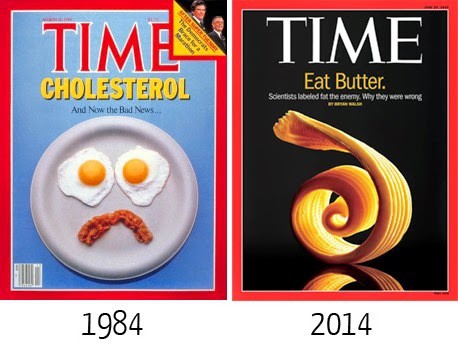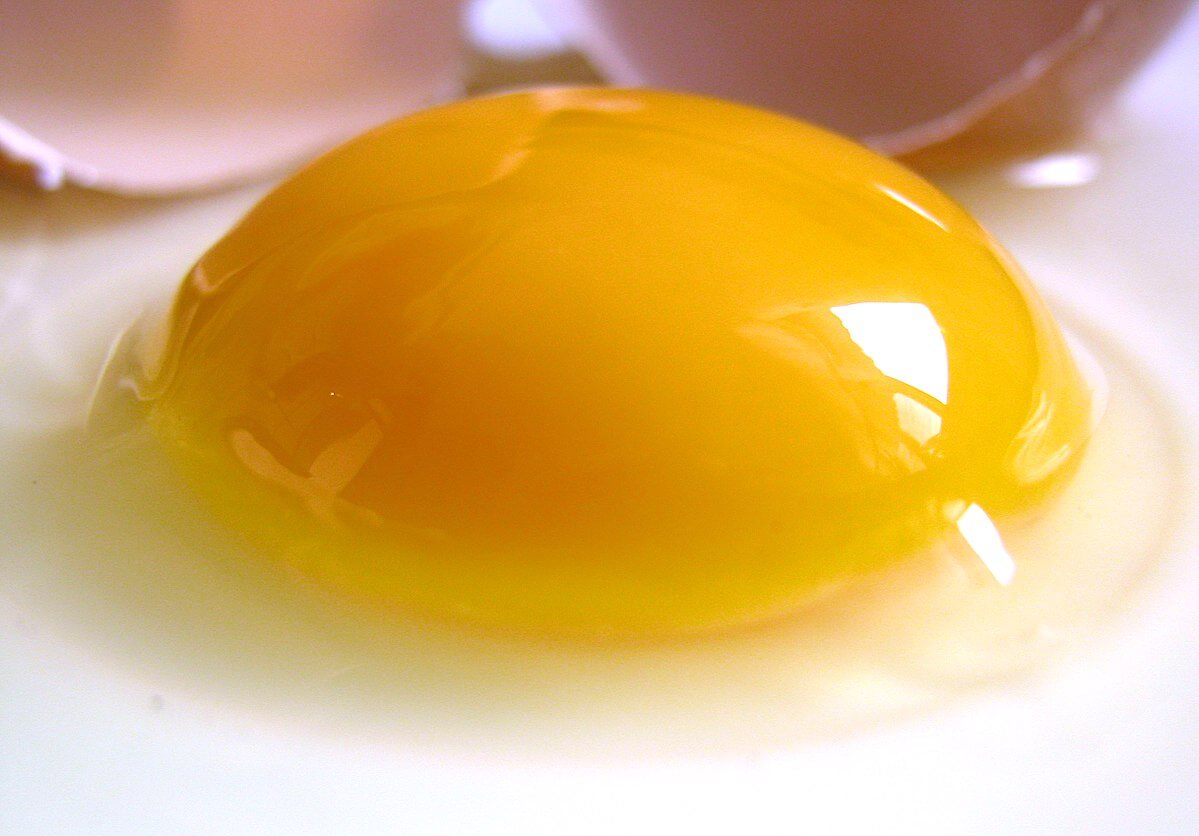Remember in the movie Runaway Bride when Julia Roberts’ character could never decide how she liked her eggs? We say, don’t worry about it Ms. Roberts, with so many health benefits associated with the consumption of eggs, you should eat ’em however you can get ’em!
On the most superficial level, eggs are an excellent source of protein, providing 5.5 grams per 68 calorie serving and all 9 essential amino acids (all for less than 0.5 grams of carbs!) One large egg contains only about 78 calories, yet is very high in nutrients.
Nutrients In Eggs
One large egg has varying amounts of 13 essential vitamins and minerals, high-quality protein, all for 70 calories.While egg whites contain some of the eggs’ high-quality protein, riboflavin and selenium, the majority of an egg’s nutrient package is found in the yolk. Nutrients such as:
-Vitamin D, critical for bone health and immune function. Eggs are one of the only foods that naturally contain vitamin D.
-Choline, essential for normal functioning of all cells, but particularly important during pregnancy to support healthy brain development of the fetus.
-Lutein and zeaxanthin, antioxidants that are believed to reduce the risk of developing cataracts and slow the progression of age-related macular degeneration, a disease that develops with age.
The Yolk: A Nutrient Goldmine
There’s more to eggs than just the whites.
While eggs are commonly associated with breakfast and protein, many individuals aren’t aware of the nutrient package the whole egg provides. This includes a variety of vitamins and minerals required for the body to maintain health. These nutrient, a majority of which that are found in the yolk, play key roles in many aspects of health at all ages.
Is it wise nutritionally to throw out the yolk?
Most of the vitamins and minerals in an egg are lost if the yolk is discarded. The white of a large egg contains ~60% of the egg’s total protein with the remaining ~40% found in the yolk. Additionally, fat and cholesterol in the egg yolk carry fat-soluble nutrients like vitamin D, E, A, choline, and the carotenoids lutein/zeaxanthin, which may aid absorption of these essential and important components of egg.
What You Lose Without the Yolk
Protein
-Vital for the health and maintenance of body tissues, such as muscle
Note: Eggs provide the highest
quality protein available. Other sources of complete protein, which contains all essential amino acids, are animal proteins and soy.
Vitamin D
-Works with calcium to promote bone health, regulates cell growth and immune function
Choline
-Essential for normal functioning of cells, important for brain development of fetus during pregnancy
Vitamin B12
-Involved in nerve function, energy metabolism, and synthesis of DNA and red blood cells
Folate
-Prevents birth defects and damage to DNA, needed for cell division and growth
Vitamin A
-Supports immune function, eye health and cell growth
Vitamin B6
-Critical for protein metabolism and synthesis of neurotransmitters, important for immune function
Iron
-Needed to transport oxygen throughout the body, involved in regulation of cell growth and immunity
Thiamin
-Required for nutrient metabolism and norma function of the heart, muscles, and nervous system
Vitamin E
-Antioxidant that helps prevent cell damage
Selenium
-Regulates thyroid function, antioxidant that helps prevent cell damage
Phosphorous
Essential for development of healthy DNA, important in bone structure
Zinc
-Supports normal growth and development during pregnancy and childhood, required for taste and smell, important for proper immune function and wound healing
What About Cholesterol?
And now to address the bad press. In recent years, eggs have come under considerable fire for their high cholesterol content, with many suggesting that they could increase the risk of cardiovascular disease. However, a 1999 Harvard School of Public Health study published in the Journal of the American Medical Association determined no such link and even went as far to say that regular egg consumption may actually prevent blood clots, stroke and heart attack. Not bad, eh?
 The available evidence indicates that eggs, when consumed as part of an overall healthy diet pattern, do not affect risk factors for cardiometabolic disease. Recent recommendations from the American Heart Association, American College of Cardiology and American Diabetes Association do not limit egg or cholesterol intake, a change from earlier guidance from these organizations. In fact, several global health organizations, including Health Canada, the Canadian Heart and Stroke Foundation, the Australian Heart Foundation and the Irish Heart Foundation, promote eggs as part of a heart-healthy diet.
The available evidence indicates that eggs, when consumed as part of an overall healthy diet pattern, do not affect risk factors for cardiometabolic disease. Recent recommendations from the American Heart Association, American College of Cardiology and American Diabetes Association do not limit egg or cholesterol intake, a change from earlier guidance from these organizations. In fact, several global health organizations, including Health Canada, the Canadian Heart and Stroke Foundation, the Australian Heart Foundation and the Irish Heart Foundation, promote eggs as part of a heart-healthy diet.
Eggs and Weight Loss
Whether you like them scrambled, poached or over easy, eggs are welcome in many health-conscious diets. They’re relatively low in calories and full of high-quality protein and other nutrients, which means they can boost your health, as well as help you shed pounds. Some egg-based dishes are high in calories and fat, however, so stick to healthier cooking methods if you want to lose weight.
Some of eggs’ health benefits — as well as weight loss benefits — come from their high-quality protein. Each egg contains slightly more than 6 grams of protein, made up of all the amino acids you need from your diet. Your body can use that protein to build new muscle tissue — a bonus for weight loss, since muscle tissue burns more calories than fat. Protein also helps you feel full, and requires more energy to digest than carbs or fat, so you’ll burn more calories breaking down a protein-rich meal.
There’s some evidence that eggs specifically help you shed pounds. One animal study, conducted at the University of North Carolina, looked at whether egg protein promoted weight loss. The study authors fed rats one of two types of high-protein breakfasts — one made up of egg protein, and one with wheat protein — and found that rats who ate the egg breakfast ate less for the rest of the day. That signals that egg protein might be more filling some than other types of protein, which might help you control overeating.
A human study, published in the International Journal of Obesity, also found that eggs might help you lose weight. The researchers fed overweight or obese patients either an egg breakfast or a bagel breakfast as part of a calorie-controlled diet. They found that people who ate eggs for breakfast on a weight loss diet lost more weight than the people who ate bagels, and they also lost slightly more body fat.
Healthy Serving Tips
The versatile nature of eggs makes them convenient to include in your diet, which offers a potential weight loss benefit, since you’re more likely to stick to a plan that doesn’t require endless hours in the kitchen.
Ways to incorporate eggs:
-Boil eggs for snacks
-Eat eggs for breakfast – scrambled, poached, fried – any way you want!
-Add an egg to your salad
-Have avocado with your eggs
-Make deviled eggs for snacks or appetizers  for gatherings
-Put an egg on a hamburger patty for added protein
Eating eggs before your workout might also help you lose weight. One study, published in the Journal of Science and Medicine in Sport, found that eating a high-protein snack before cardiovascular exercise boosts your calorie burn more than if you eat a lower-protein snack. Try an egg on a small slice of whole-grain toast for a high-protein snack, to fuel your workout and help you banish fat.
So, there you have it. Eggs really are egg-ceptional. Some might even consider them egg-cellent and still others would even go as far to call them eggs-quisite (ok, we promise we’ll stop now!)

Sources:
http://www.marksdailyapple.com/eggs/
http://www.livestrong.com/article/426647-are-eggs-healthy-for-weight-loss/
Egg Nutrition Center


